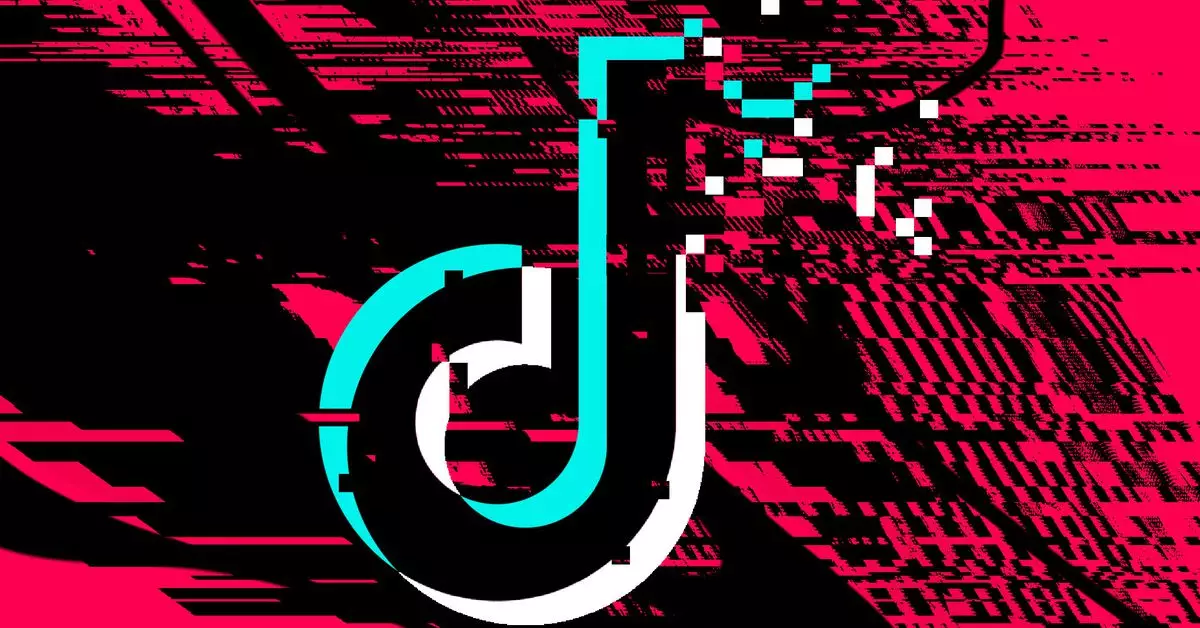The social media platform TikTok finds itself in a precarious position as it faces a potential shutdown on January 19th unless the incoming Biden administration intervenes. This situation reflects the intersection of technology, politics, and national security, revealing the complexities within the tech industry and the regulatory environment.
Legal Implications and Company Responses
TikTok, owned by Chinese company ByteDance, has confirmed its intent to “go dark” if it does not receive a definitive statement from the Biden administration that ensures its critical service providers will not face legal repercussions. Among these service providers are tech giants such as Apple and Google, whose app stores distribute TikTok, as well as major hosting partners like Amazon and Oracle. This stipulation underscores the growing apprehensions around data security and potential foreign influence, central themes in ongoing discussions concerning social media platforms operating in the United States.
The urgency of TikTok’s plea can be contextualized within the backdrop of recent judicial developments. The Supreme Court upheld legislation that mandates TikTok’s divestiture from ByteDance to continue its operations in the U.S. This legal ruling aligns with a broader narrative that seeks to address alleged national security risks associated with foreign ownership of data-rich platforms.
Complicating TikTok’s predicament is the political landscape, specifically the transition from President Trump to President Biden. Trump has indicated, through previous statements and negotiations with Chinese leadership, his intention to safeguard TikTok’s place in American society, provided it undergoes an ownership change that alleviates regulatory fears. However, the Biden administration appears to be adopting a cautious approach, deferring actionable decisions until the new administration is fully established.
In a stark acknowledgment of the timing issues, the White House stated that enforcement measures related to TikTok’s ban would fall under the purview of the incoming administration. This would allow some room for negotiation or alternative measures, but also create a challenging environment for TikTok as it grapples with the looming threat of shutdown.
Legal Consequences and Enforcement Strategies
The Department of Justice (DOJ) remains firm in its stance against TikTok, reinforcing the rationale behind the ban. Attorney General Merrick Garland has highlighted the potential dangers of allowing foreign entities access to sensitive data belonging to Americans. By threatening fines of $5,000 per user to U.S. service providers that fail to comply with the ban, the DOJ illustrates its commitment to enforcing the legislation, further complicating TikTok’s operational viability.
This stringent enforcement mechanism reflects broader national security anxieties tied to tech companies, particularly those with foreign ownership. The legal and regulatory strategies being employed indicate a prioritization of user data protection over unfettered app availability, even if it means pushing popular platforms offline.
In the face of impending shutdown, some political figures are reconsidering their positions on TikTok. A wave of dissent among legislators who initially supported the ban indicates a willingness to grant ByteDance more time to divest its ownership stake. This shift reflects growing recognition of the potential cultural and economic ramifications of losing a platform that has become integral to communication and entertainment for millions.
The balancing act between national security and the social fabric of American internet usage is notably difficult. As Congress grapples with this dilemma, the future of TikTok hangs in the balance, suspended between legal mandates and a rapidly evolving political environment.
As the January deadline approaches, TikTok’s fate remains uncertain. Will the new administration choose a path of confrontation or negotiation? Can ByteDance find a buyer willing to meet the stringent demands of U.S. lawmakers? What will this mean for the millions of users who rely on TikTok for social engagement and content creation?
These unanswered questions create a tension-filled atmosphere, capturing the brinkmanship inherent in today’s tech landscape. As the intricacies of legislation, corporate strategy, and user behavior intertwine, TikTok’s continued existence in the U.S. may well serve as a barometer for future regulations impacting the global tech ecosystem and its interaction with national security concerns.

